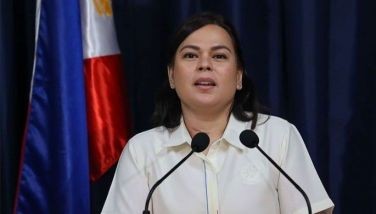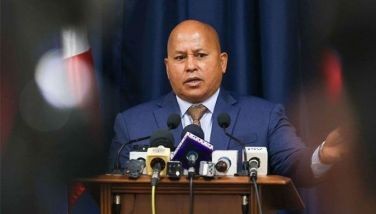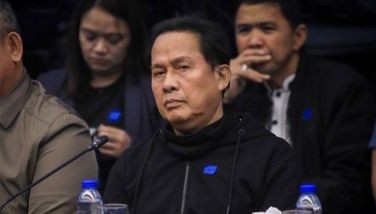RP tribal Olympians strike gold
CLARK FREEPORT, Pampanga, Philippines – Aeta, Mangyan and Dumagat athletes from the Philippines dominated the first Southeast Asian Tribal Olympics in Malaysia last Thursday with three golds, a silver, and four bronzes. Wearing blue and white jackets, the tribal folk proudly held their medals high as they alighted from an Air Asia aircraft at the Diosdado Macapagal International Airport last Friday afternoon.The tribal folk were the country’s representatives to the first ASEAN Tribal Olympics held from Sept. 14 to 16 in the mountains of Nanuk Ragang in Ranao, Kota Kinabalu in Malaysia.
The athletes sported their traditional G-strings and brought their own bows and arrows, as well as spears and blowpipes for the games.“It was smooth sailing for us. We could have readily beat them in all the games if we really wanted to,” Aeta Jun Ablong, who won two golds in tree top archery and blow pipe competitions and a silver in archery assault, said in Kapampangan upon arrival at the airport.Guy Hilbero, founder of the Mabalacat Aeta Tribal Association (MATA), said that aside from Ablong the other gold medalist was Naval Dumlao who excelled in the field of archery assault.In archery assault, the competitor runs to hit successively four targets as fast as possible.“The other competitors were of no match. Naval hit all four targets bull’s eye,” Hilbero said.The other Filipino victors in the tribal games were Mangyan Arnulfo Bernardo with a bronze in tree top archery, Mangyan Reynaldo Panagsayan with bronze in blow pipe competition, Aeta Jimmy Ablong, brother of the gold medalist, who ended up tied for bronze with Dumagat Ricardo Turgo in archery assault.Murot and Luzon tribal folk from Malaysia got all the medals in the kneeling and standing archery competitions.Hilbero said the competitions in spear throwing and running were cancelled because bad weather persisted in the mountainous venue, a four-hour ride from the airport of Kota Kinabalu.The tribal folk who represented the Philippines in the Malaysian games were the winners in the national tribal Olympics held here and in other parts of the country last year under the sponsorship of the Philippine Olympic Committee (POC), the ASEAN Center for Biodiversity (ACB) and the Philippine Soft Tennis Association (PSTA) with the support of other groups.Last week’s Tribal Olympics was initiated also by the same group, which plans to hold the games yearly to pave the way for international level competitions in 2015.
It was arranged as a partnership project with Malaysian sports officials.The first Asian competition in Sabah was formally opened by top Malaysian sports officials led by Johnson Koh and PSTA president Jeff Antonio Tamayo Jr.
Some 12 other tribal groups from other ASEAN countries participated.Tamayo said that the games were meant not only to promote the welfare and dignity of tribal folk, but also to promote environmental concerns reflected in the lifestyles of indigenous peoples.“Next year, we hope to hold the Asian games in Laos in our bid to have more official participation from more countries in Asia,” Hilbero said.Except for Aeta Danilo Tecson who had once worked in Saudi Arabia and attended a seminar in South Korea, the trip to the Tribal Olympics was the first time for the other Aetas to go abroad.Tecson, who helped arrange for their passports, said that special arrangements were made for their documents as most Aetas do not have birth certificates and could not even read and write.“It was enlightening to realize that there are other tribal folk in other countries. We are not alone, after all,” said Jun Ablong.The Aetas said they were proud to represent the country, although they expressed hope that there would be more support from the national government and the private sector in the next games so that they could have some cash allowance for pasalubongs for their families.Hilbero said available funds were enough only for the trip and accommodation expenses of the delegates.While the Filipino tribal folk did not have time to tour other parts of Malaysia, Ablong said he was impressed by what he saw in Kota Kinabalu.
“Everybody seemed to have their own cars there. There was no jeepney, no tricycle of any kind,” he noted.
- Latest
- Trending


































